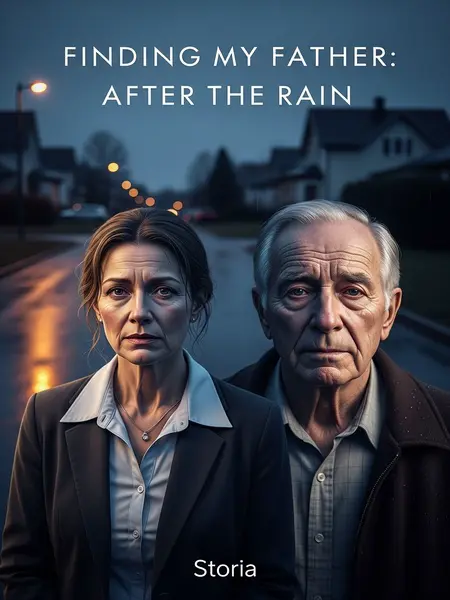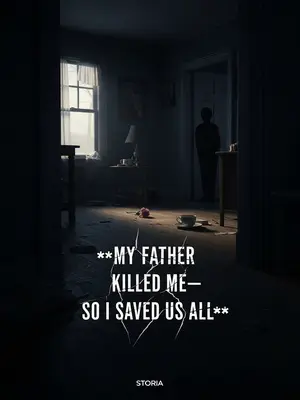The Vanishing: A Daughter’s Burden
My dad wandered off.
Again.
That makes twelve times just this month he’s disappeared—already beating last month’s record. Knowing my dad, if I had to bet, I’d find him at the old mill, by the lake, or at the chess tables in Maple Heights Park—chances are, I’d find him there.
Every time my phone lights up with that familiar number, my stomach twists into knots. I freeze, whatever I’m doing, bracing myself for the news. By now, it’s a whole routine: laptop snapped shut, keys snatched up, heart thudding as I bolt out the door, running through my mental checklist of the usual places he might’ve wandered. The air in those moments feels thick and sticky, almost pressing down on my shoulders, like the world itself is holding its breath with me.
I hang up the phone. There’s still a mountain of work waiting for me, but all I can do is rush home. My dad isn’t just any old man—he has Alzheimer’s disease. Around here, everyone just calls it Alzheimer’s, though some of the older folks still say ‘senile dementia.’
I can’t help but remember the first time he disappeared—how I tore through the neighborhood, screaming his name until my voice was hoarse. Three years in, the panic has faded into a dull, heavy ache, but it’s always there, lurking, waiting for the next call.
On my way home, I called our neighbor, Mrs. Parker, to see if she’d seen him. “I knocked for a long time, but he just wouldn’t open the door. Later, I searched your yard for ages, but there was no sign of him.” She hesitated, then added, “Oh, right, Emily… Didn’t you buy your dad one of those trackers?”
I couldn’t help but grimace at the motionless tracker on the table. “It doesn’t help, Mrs. Parker. He left it at home.”
I could picture her standing there in her kitchen, slippers on, pursing her lips in that way she always does, probably looking up at the ceiling like maybe the answer was written up there somewhere. Mrs. Parker’s always been the neighborhood’s unofficial lookout—if anyone would notice Dad slipping away, it’d be her.
Ever since I found out about Dad’s illness, I tried everything. First, I bought him the fanciest GPS watch, then made an ‘ID card’ with his name and our address, like a work badge, and made him wear it around his neck. I even printed a fat stack of cards with my phone number and stuffed them into every one of his pockets.
I remember lining up all the gadgets on the kitchen counter, reading every review, desperate for some magic fix. I even sewed his name into the collar of his favorite flannel shirt, just like you’d do for a grade-schooler. I wanted so badly to believe I could outsmart this disease if I just tried hard enough.
But Dad got embarrassed and kept sneaking off the tracker and ID. Sometimes he’d just toss the little cards. All my efforts, up against his stubborn streak, didn’t stand a chance.
One time I found a whole pile of crumpled cards in the trash, buried right next to the coffee grounds. He’d flash me that sly, boyish grin, like he’d just pulled off the world’s greatest prank. Sometimes, I almost laughed. Almost.
“This disease is truly cruel. People lose themselves, their personalities shift, and eventually, they may even become bedridden and incontinent.”
Every time I hear the doctor’s words in my head, my heart sinks all over again. He’d said it gently, but it still cut deep.
I can still see the doctor’s face—calm, distant, hands folded on his clipboard, his voice steady as if he was reading from a textbook. The harsh fluorescent lights buzzed above us, making the room feel even colder. That was the first time I realized there are some things you just can’t fix, no matter how hard you try.
Three years ago, I’d just turned thirty, hitting my stride as a senior manager at a travel tech startup in Chicago. With bonuses, my yearly income could put all my college friends to shame. From a high-flying executive in Chicago to running a small inn in Maple Heights—what a turnaround.
I’d hustled for that corner office, the city skyline just outside my window, my name on the door. I wore heels that clicked on polished floors and ordered midnight takeout with my team. I was proud to have built a life far from this small town. But sometimes, life yanks you right back where you started, ready or not.
All of that ended the day my dad got sick.
One phone call, and everything I thought I knew about my future got rewritten in a heartbeat. Some days, it feels like my old life belongs to someone else entirely.
The road ahead was bumper-to-bumper, so I had to take a detour. As I turned off, something about this street felt oddly familiar. It only took a minute for me to realize why.
Slowing for a red light, I glanced out the window and saw the faded sign for Maple Heights Elementary. The playground was empty, swings creaking in the wind. For a second, I was eight again, clutching my lunchbox, waiting for Dad to pick me up.
Somehow, I’d ended up at my old elementary school—Maple Heights Elementary.
Funny how muscle memory works. My hands seemed to know the way, even when my mind was a million miles away.
Back then, Dad was still tall and strong, always ready to give me a piggyback ride. He was a mill worker, always in stained overalls. When I was little, I didn’t care, but after third grade, I got self-conscious and started dodging him.
I remember the feel of his hands—rough, calloused, always smelling faintly of machine oil and sawdust. He’d hoist me up so high I could see over the other kids’ heads. But once I hit that awkward age, I’d duck behind the big oak at pickup, hoping he wouldn’t wave so loud.
Now he’s the one hiding from me.
I can’t help but shake my head at the reversal. I used to avoid him out of embarrassment; now, he slips away from me, lost in a world I can’t reach.
“His mind works differently from others, so he often confuses day and night. As a family member, you have to watch him closely.” My dad never missed a single symptom the doctor described. Textbook case.
I’ve memorized every pamphlet, every warning sign. Still, nothing prepares you for the moment you realize you’re living the brochure’s worst-case scenario, for real.
He checked off every box.
It was like he was determined to prove the doctor right—every new quirk, from leaving the faucet running to making coffee at 3 a.m., was another symptom, another box ticked.
When I first came back, my career was in limbo, so I took care of him myself. I thought about hiring a professional caregiver, but everyone I met seemed cold and distant with the elderly.
I’d interviewed a few—women with tired eyes and clipped voices, men who treated Dad like he was just another shift. Their hands were quick, but their smiles never reached their eyes. I couldn’t stand the idea of him being just another patient.
I couldn’t do it. Guess it’s up to me to take care of him.
I tried to convince myself it was a blessing, that I was doing the right thing. But some nights, I’d lie awake, wishing I could just be someone’s daughter again instead of his nurse.
Even though his memory was fading, my dad was still physically strong, and pretty soon he was fed up with all the “supervision.”
He’d pace around the house like a caged animal, muttering, glaring at me as if I’d locked him up. The more I tried to keep him safe, the more he fought back.
“Dad, I already gave up my life in Chicago for you.”
I didn’t mean for it to sound so bitter, but the words just spilled out, sharp and raw. Sometimes, the weight of it all presses down so hard you just can’t keep it inside.
The place we lived had none of the comforts I’d grown used to in Chicago. Work stress piled up, and Dad’s stubbornness just made me snap sometimes.
I missed my old apartment—central air, a dishwasher, late-night takeout, city lights out the window. Here, everything felt cramped and unfinished. The walls seemed to close in, especially when Dad was in one of his moods.
“If you care about me at all, please just take your medicine, okay?”
Yeah, maybe I was guilt-tripping him, but I was out of ideas. But honestly, guilt trips don’t work on Alzheimer’s. Dad did what he wanted. His mind might be confused, but his body was quick. He could slip out of the house like a stray cat—fast, quiet, always one step ahead.
He was always finding new ways to escape—ducking out the back door, squeezing through the side gate. I’d find his shoes by the porch, mud on the soles, and know he’d been gone for hours before I even noticed.
After a few too many escapes, I changed out all the locks and installed smart locks to keep him inside.
I put up cameras, swapped the locks, even added a baby gate. Still, he’d always find a way—sometimes with a wink, sometimes with a shrug, like he was saying, "Nice try, kid."
Since Mrs. Parker often brought lunch for Dad, I gave her the password and offered to pay her for the trouble. “Why be so polite? How much food can your dad eat anyway?”
Mrs. Parker refused to take anything for it, leaving me feeling a little awkward. “Your dad is a good man. Who would’ve thought Mr. Rivers would end up like this in his later years.”
She’d shake her head, eyes soft, hands always busy with a casserole dish or a Tupperware of soup. She never let me pay her back, not even with a thank-you card.
Watching Dad shuffle around the yard, muttering to himself, Mrs. Parker’s sympathy was clear as day. I could tell she really felt for him.
Sometimes, I’d catch her watching him from her window, arms folded, her face a mix of worry and nostalgia, maybe remembering the man he used to be.













